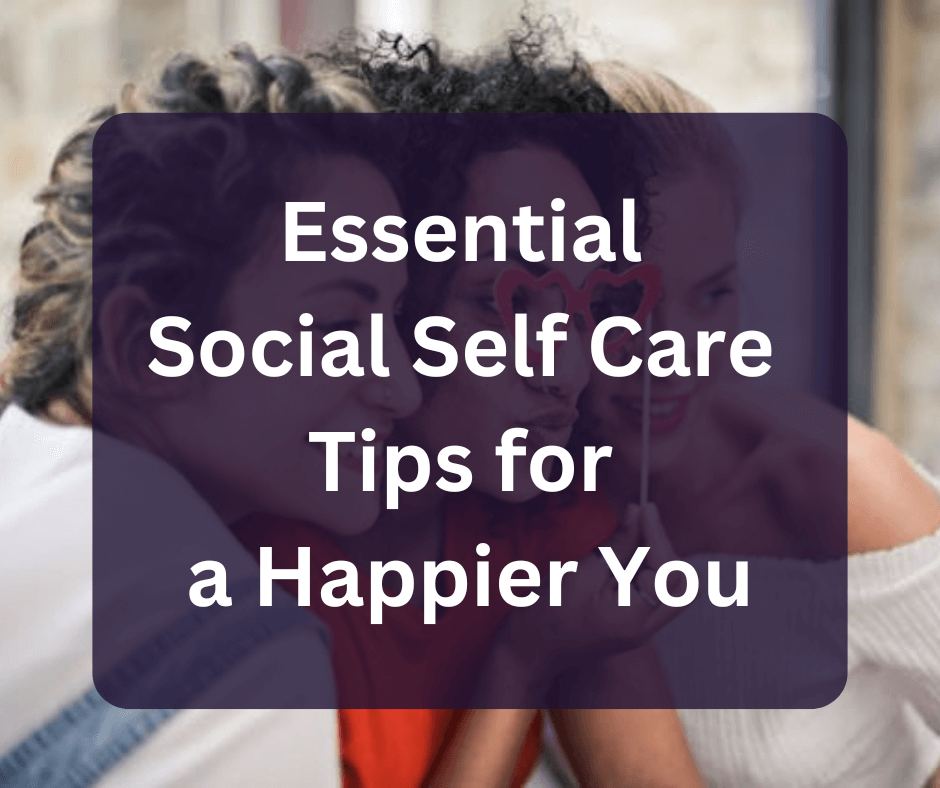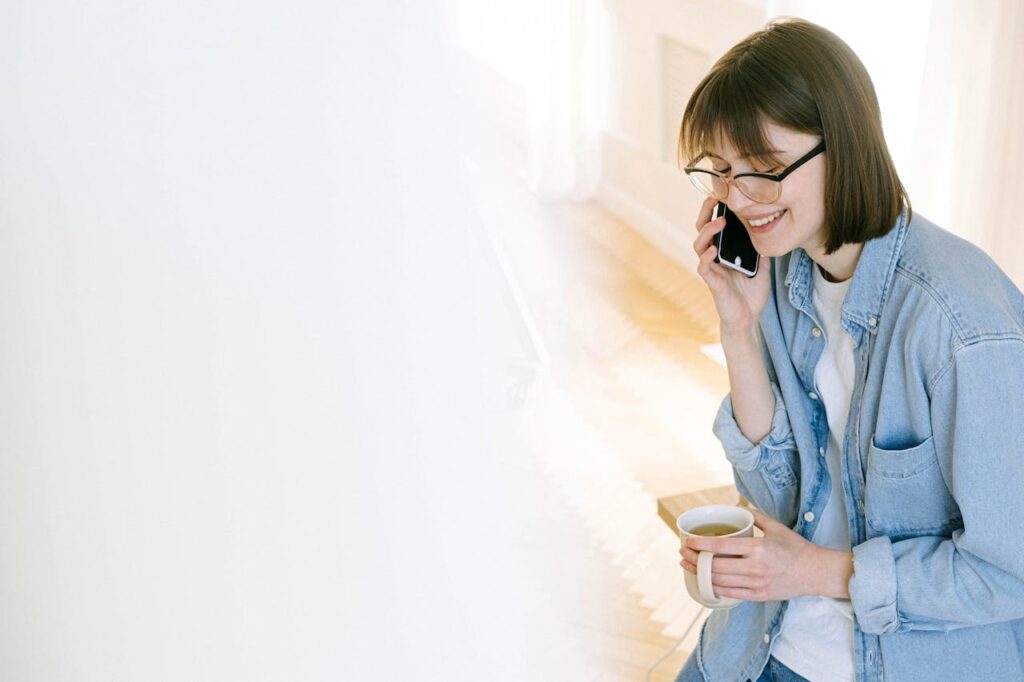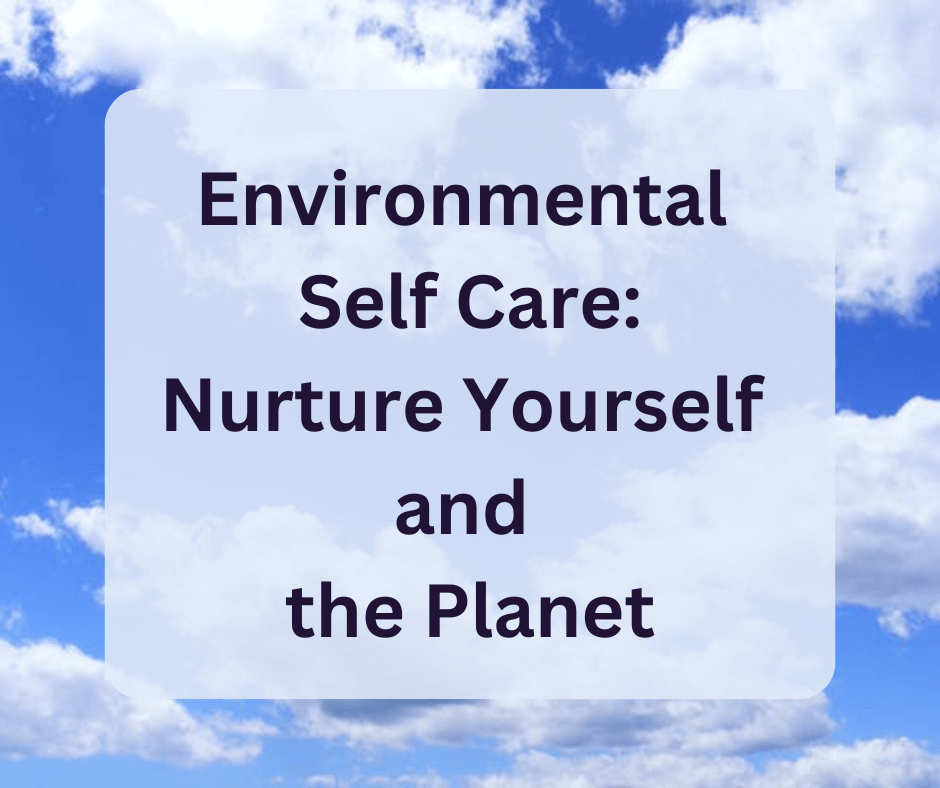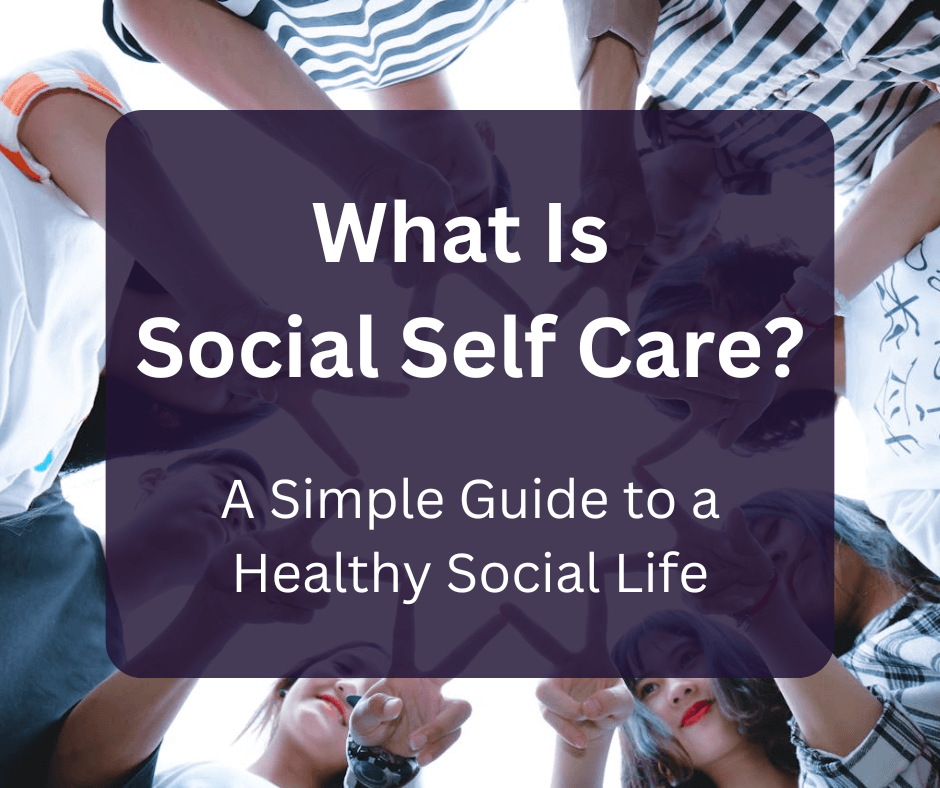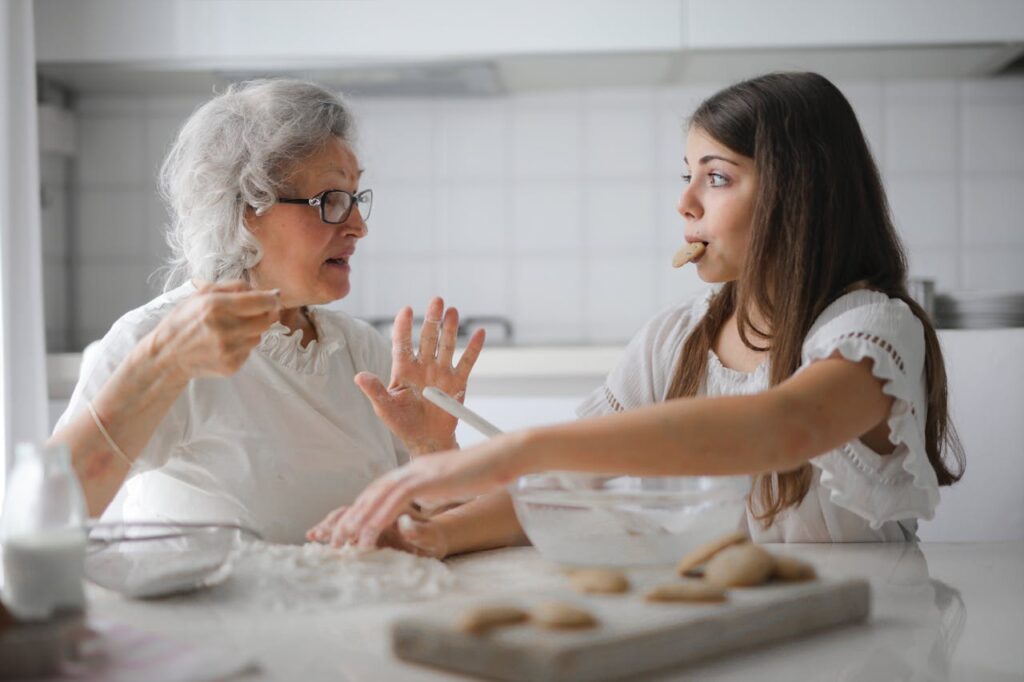Did you know that people with strong social connections have better physical and mental health than those with weaker social ties? The chances of living longer are increased by 50% if you have a strong social circle. And in our increasingly digital world, taking care of our social well-being has never been more crucial.
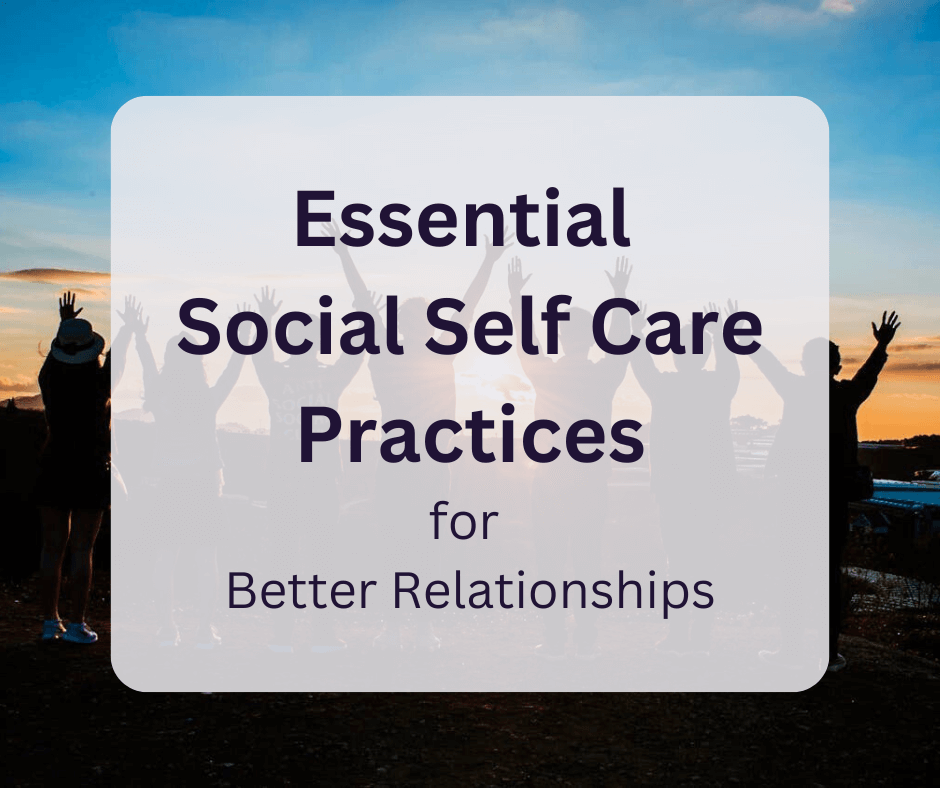
I’ve found that social self care goes far beyond casual meetups – it’s about cultivating meaningful connections that nourish our souls and support our mental health. Let’s explore the essential social self care practices that can help you build and maintain healthy relationships while taking care of your own needs!
Understanding Social Self Care and Its Impact on Well-being
Social self care means looking after your social life in the same way you are looking after your body or mental health. Going to the gym and eating healthy has been normalised in our society, and we all agree it’s a good practice to have. We are also starting to talk more and more about the importance of mental and physical self care, and how it needs to be integrated into our daily lives.
But another aspect of our mental and physical health – which should not be overlooked – is looking after our social life. Human connection is an essential ingredient of a healthy life. Our body chemistry is influenced by our interactions with others: touching, hugging and positive social interactions release neurochemicals like oxytocin, dopamine and serotonin. These are responsible for
- reducing anxiety
- regulating mood and
- promoting happiness.
Social self care is important for your well-being. Having a strong social circle to rely on helps you deal better with stress, prevents overwhelm and burnout. You are more resilient, and better equipped to overcome challenges in your life when you have the safety net of a strong and reliable group of friends and family.
Notice I said strong, not large. Because the quality of the relationships has been proven to be more important than quantity. In fact, whether you have a large group of superficial friend or no friends at all, makes no difference. The benefits of socialising come from meaningful relationships.
Core Social Self Care Practices for Everyday Life
But how do you know if your relationships are meaningful or not? How do you identify and nurture deep connections? Here are a few attributes to look for in your relationships:
- Reciprocity – reaching out, connecting and sharing should come both ways. If only one person is making an effort, this is not a strong or authentic relationship.
- Openness – you have to be able to be yourself in a relationship. If you feel that you need to hide certain aspects of yourself just to be accepted, or if the other person is doing this, the relationship is shallow.
- Mutual trust – seems obvious, but you need to be able to be vulnerable with your friends and loved ones. You need to know you can rely on them during hard times, and that your weaknesses will not be used against you.
- Mutual support – real friends support each other. This life is difficult already as it is. You need your friends and loved ones to be on your side. If you feel they are always putting you down or criticising without giving constructive advice, you are in a toxic relationship.
- Honesty – a friend should be able to tell you the truth, even if it’s uncomfortable. This is how we grow. We are imperfect, a constant work in progress. Your loved ones should be part of this journey, and you should be part of theirs.
How do you nurture and strengthen your relationships? Here are a few ideas of social self care practices that you can start implementing right now.
Maintain regular social connections
Relationships can’t survive if they are not nurtured. Friendship is sustained by regular contact, especially in the initial phases. Without it, people drift apart and the connection weakens, then breaks.
If you want to have strong and meaningful relationships with the people in your life do not neglect this aspect. It’s true that our busy lives make it difficult to keep in touch with our friends and family, but when you realise how important this is, I hope you can make time.

You can always re-purpose some of the time you are currently using for other, not-so-useful activities. We all have those bad habits we cling to every day: mindlessly consuming content, either by scrolling through socials, playing video games or watching something on Netflix. And while these activities help us unwind, I am willing to bet that you are doing more of this than is healthy.
So exchange some of that time with human interaction. Take one evening every week and re-purpose it to encourage healthy human, face-to-face connection.
Master the art of authentic communication in relationships
I can’t tell you how many relationships I found myself in, where the conversation was always surface level. I used to be afraid of showing vulnerability, so I always stuck with shallow, safe subjects of conversation. And friendship always felt more like a chore than an opportunity for connection.
Don’t make the same mistake I made. One of the most important social self care practices you need to implement is authentic communication: be a good listener and learn to share.
We are inclined to feel closer to the people who seem the most like us. When you share your worries, struggles and failures, this signals to the other person that you are like them, because these are universal experiences. It creates a bond that says we’re in this together. It makes you vulnerable, sure, but it also opens the door for them to share, too.
If, like me, you learnt to hide your real self in some misguided attempt to protect yourself, it’s time to un-learn this behaviour. Because it is not serving you, it’s just keeping you isolated.
Putting yourself out these feels uncomfortable. But like with everything, the more you do it, the easier it gets. Start small. Start with one friend. Take small steps and add to it as you go.
If you feel uncomfortable, that’s ok. It means you are getting out of your comfort zone, and that’s where growth really stars.

Create rituals and traditions that strengthen social bonds
To create sustainable social self care practices, you need to shift your mindset when it comes to leisure. Social interaction is supposed to be fun. It used to be our time off, it was how we would unwind at the end of a hard day. Then social media came along, with the illusion of virtual socialising, and now we’re all avoiding each other.
We avoid talking to strangers, we feel annoyed when someones calls out of the blue, we treat social interaction like an event that needs to be planned, curated, and then advertised online. Friendship is performative, time off is something we do alone.
But what if we shifted this mindset back to what it used to be when there was no media to steal our attention? When interacting with people was just a normal part of your every day? Here are a few ideas on how to make people part of your leisure time:
- set up recurring social activities, like games nights
- have a weekly movie night, when you go to the cinema with a friend, or watch a movie together at home
- normalise having friends over. It used to be something we did back in the day. You don’t need to go to expensive restaurants or cocktail bars; you don’t need to schedule every meeting. Encourage your friends to drop by and let the conversation flow over a cup of tea
- go on nature walks at the weekend. It’s not only healthy for your body and mind, it also encourages connection through a shared experience
- host dinners and house parties for your friends
Setting Healthy Boundaries in Social Relationships
While staying connected is important for your social self care, it’s just as vital to know how to honour your own boundaries. Otherwise, relationships can shift from fulfillment to frustration.
We are all different, we have diverse life experiences and different needs. So it’s normal that our interests might clash every now and then. This does not mean that thee is something wrong with your relationship.
In fact, conflict is a natural part of human interaction. But you do need to be aware of these differences and how to avoid turning conflicting interests into frustration and anger. This is social self care hygiene.
Most people feel uncomfortable when it comes to sharing their boundaries. If something or someone oversteps our boundaries, we prefer to ignore or hide it, because we fear confrontation. We think we would much rather endure the transgression, than go through the ordeal of calling it out, trying to explain how it affects us and why it should be stopped.

Maybe you are the same. Maybe you fear rejection, or don’t want to deal with an upset friend. And it is true: if the other person lacks emotional maturity, they might end up feeling upset, hurt, or act out.
This is why it’s important to:
1. Communicate your boundaries from a place of empathy.
Be firm, but also try to put yourself in their place. Help them understand why this boundary is important for you, and how you feel without it. Ask if there are any boundaries they need to enforce themselves. Emphasise how important communication is for the health of your relationship.
2. Let people deal with their own feelings.
If you expressed your needs in a respectful way and they are still upset, you don’t have to feel personally responsible. Too often we feel at fault for other people’s emotions. But know this: adults can regulate their own emotions. And if they don’t, they will learn. It’s not your job to make them feel better. And it certainly is not your job to make yourself feel bad, and betray your needs, to maintain the status quo.
Building a Sustainable Social Self Care Routine
To make nurturing your relationships a habit, you need to develop social self care practices that can be easily integrated into your daily life. Develop a regular social schedule, like going to the gym. Here are a few ideas:
Design a personalised social self care plan
You don’t need to fill up your week with social events. Make it small. Start with one day a week. If you end to have more time at the weekend, make Sunday the day you see a fried in real life.
Make it non-negotiable. It doesn’t matter if it rains, or your household chores have magically multiplied, or you feel down and just want to stay in. There will always be excuses.
If you don’t trust yourself to stick to his schedule, make it a commitment. Buy movie tickets at the beginning of the week, so you can’t get out of it. Schedule an activity that involves several people, because you won’t feel like blowing everyone off. Find little tricks like these to hold yourself accountable if you know your motivation is usually low.
Incorporate regular check-ins with loved ones
If you tend to get carried away with everyday life and forget to check in with people, set reminders for yourself. I legit have reminders in my agenda that sound like this: “Call mom”; “Check in with X”.
There’s no shame in needing a little help. Better than letting your friends and loved ones be the ones who always reach out.

Create meaningful group activities and traditions
I already hinted at this, but it’s always good to have a reminder: schedule regular activities with your friends. Create traditions, like Sunday is movie night at my place. This is a great opportunity for your group of friends to get together, connect and unwind.
Don’t worry if this kind of thing is not normal in your friend group. Be the one who starts these traditions, if nobody else will. People love these kinds of things, and the reason why we don’t have more of it is because we’re all afraid of sounding weird or being rejected. Be the one to break this cycle, and you will encourage others to come up with ideas of their own!
Evaluate and adjust social self care practices regularly
Don’t be afraid to re-evaluate your social self care practices regularly. Something that worked for a while might not be working anymore. Our lives are always in flux, our relationships are always evolving. If something doesn’t work anymore, change or adjust it.
Check in with your friends, see what works for them, do they have any suggestions? Don’t forget that your ultimate goal is creating a healthy and fulfilling social life for yourself.
Conclusion
Implementing social self care practices isn’t just about having a busy social calendar – it’s about creating meaningful connections that support your overall well-being. By incorporating these strategies into your daily routine, you’ll build stronger relationships while maintaining healthy boundaries.
Remember, small steps in social self care can lead to significant improvements in your mental health and life satisfaction. Start with one practice today, and watch how it transforms your social connections!


